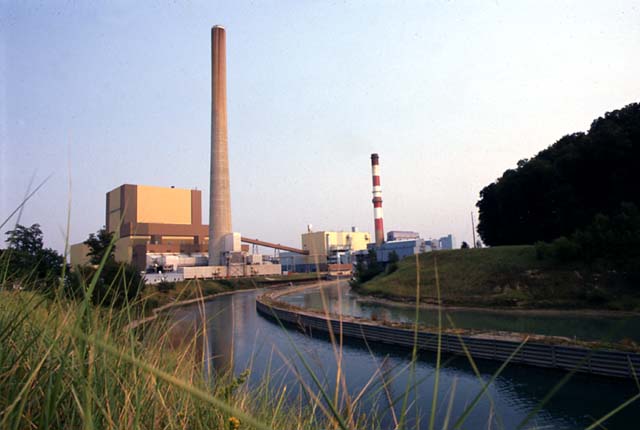Overview:
- Environmental advocates are raising alarms after the Trump administration's decision to keep a Michigan coal plant running through summer, despite plans for its closure.
- The emergency order, criticized as a "sham," is seen by advocates as a misuse of presidential power, with significant public health impacts.
- The Sierra Club highlights the plant's role in causing 44 premature deaths and 455 asthma attacks each year, while critics challenge the reliability claims underpinning the order.
The Trump administration has ordered a West Michigan coal plant to remain operational through the summer, invoking emergency federal powers in a move that has prompted criticism from environmental advocates, legal analysts, and clean energy proponents.
On Friday, U.S. Secretary of Energy Chris Wright issued an emergency order directing the Midcontinent Independent System Operator (MISO), in coordination with Consumers Energy, to keep the 1,560-megawatt J.H. Campbell coal-fired power plant in West Olive, Michigan, online through August. The plant had been slated for permanent shutdown on May 31 as part of Consumers Energy’s transition away from coal.
The order was issued under Section 202(c) of the Federal Power Act and aligns with President Donald Trump’s April 8 executive order declaring a national “energy emergency.” The Department of Energy said the action is necessary “to minimize the risk of blackouts and address critical grid security issues in the Midwestern region of the United States ahead of the high electricity demand expected this summer.”
“Today’s emergency order ensures that Michiganders and the greater Midwest region do not lose critical power generation capability as summer begins and electricity demand regularly reach high levels,” Wright said in a statement. “This administration will not sit back and allow dangerous energy subtraction policies threaten the resiliency of our grid and raise electricity prices on American families.”
Consumers Energy confirmed it will comply.
“Consumers Energy plans to comply with the 90-day pause from the Department of Energy. We are reviewing the executive action and the overall impact on our company,” said Katie Carey, Director of Media Relations.
However, environmental and public health groups strongly condemned the move. The Sierra Club called the emergency declaration a “sham” and criticized the administration for overriding a previously approved retirement plan supported by state regulators and energy experts.
“Donald Trump invoking the Federal Power Act is an illegal abuse of his presidential authority,” Greg Wannier, senior attorney for the Sierra Club, said in a statement. “Coal is expensive, outdated, and deadly, and all of the relevant parties, including MISO… concluded years ago that J.H. Campbell could retire without causing any grid reliability problems.”
The Clean Air Task Force estimates the Campbell plant is responsible for 44 premature deaths and 455 asthma attacks annually. Sierra Club Michigan organizer Bryan Smigielski said, “This blatant act of federal overreach… is being imposed against the wishes of Michigan consumers, businesses, regulators, and elected leaders.”
Critics also questioned the reliability justification.
“The Department of Energy muscling in on reliability in ways that can be abused,” said Tyson Slocum of Public Citizen in a statement, while Ari Peskoe of Harvard Law School wrote on Bluesky that the April 8 order “imagines that a 90-year old law about power sector ‘emergencies’ empowers the Dept of Energy to subsidize any power plant in the country.
more coverage
DTE agrees to shut down coal-fired Monroe plant in 2032, three years ahead of schedule
The agreement includes investment in renewable energy and storage, energy efficiency, bill assistance and energy equity. It also gives favorable treatment to DTE shareholders, advocates say.
Keep readingTrump administration sues Michigan over state climate actions
The Justice Department is challenging state climate actions in Hawaii, Michigan, New York, and Vermont, arguing they undermine federal authority and the Trump administration’s energy agenda, raising concerns about states’ roles in climate policy.
Keep readingTrump administration cuts end Michigan’s Healthy Climate Corps, halt community projects
Michigan’s MI Healthy Climate Corps faces a sudden halt as federal AmeriCorps funding is cut, prompting nonprofits and young professionals to navigate unexpected challenges in sustaining their work and livelihoods.
Keep reading




